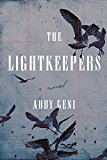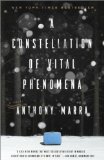Summary | Excerpt | Reviews | Beyond the book | Read-Alikes | Genres & Themes | Author Bio

From the book jacket:
What determines your identity? When Nick
Petrov wakes up in a hospital room, his
clothes are two sizes too big. Everyone
treats him like a victim. And he can't
remember how he got there in the first
place. Petrov is a brilliant private
investigator with a reputation for bringing
missing children safely home so when he
awakes in a hospital bed, his memory of the
past two weeks a complete blank, his
personality altered, he is tempted to just
put the trauma behind him and move on with
his life, but there are too many things
holding him back. When he returns home, he
discovers a photograph full of strangers. In
his office is a greeting card with a cryptic
message inside, both the receiver and the
sender completely unknown. His bank account
has been augmented by a $450 check from a
woman he can't remember. All of it points to
a case he cannot recall. Digging for answers
when he doesn't even know the questions,
Petrov begins to fear he is searching for
the most elusive quarry he has ever hunted:
himself.
Comment: Nick Petrov suffers from
glioblastoma multiform, a rapid growing
brain tumor that puts pressure on the brain,
resulting in a range of possible symptoms
from headaches, speech impairment, loss of
short-term memory, personality changes,
seizures and weakness. However, unlike other
books, mainly non-fiction, such as Oliver
Sack's The Man Who Mistook His Wife For A
Hat, Oblivion is written not from
the observers point of view but from that of
the person afflicted - a well-known private
investigator, celebrated for his ability to
find missing people who must battle his own
memory loss whilst struggling to solve his
latest case. As Joyce Carol Oates so
eloquently puts it, 'Oblivion
immerses us in Petrov's assailed
consciousness as he navigates his way
through a Dali landscape of baffling clues,
memory lapses, and visual hallucinations..'
Dick Alder, writing in the Chicago Tribune,
asks; "could it be because Abrahams makes it
seem so natural and easy that not enough
people recognize the effort and the talent
at work in his books? His 14th novel, the
stunning thriller Oblivion,
should--in a perfect world--put an end to
that."
A raft of other reviewers add their praise
using superlatives such as 'marvelous',
'unforgettable', 'pitch-perfect prose' and
'first-rate'.
![]() This review was originally published in The BookBrowse Review in May 2005, and has been updated for the
April 2006 edition.
Click here to go to this issue.
This review was originally published in The BookBrowse Review in May 2005, and has been updated for the
April 2006 edition.
Click here to go to this issue.

If you liked Oblivion, try these:

by Abby Geni
Published 2017
A debut novel from a talented and provocative new writer which upends the traditional structure of a mystery novel while also exploring wider themes of the natural world, the power of loss, and the nature of recovery.

A Constellation of Vital Phenomena
by Anthony Marra
Published 2014
A brilliant debut novel that brings to life an abandoned hospital where a tough-minded doctor decides to harbor a hunted young girl, with powerful consequences.
Your guide toexceptional books
BookBrowse seeks out and recommends the best in contemporary fiction and nonfiction—books that not only engage and entertain but also deepen our understanding of ourselves and the world around us.